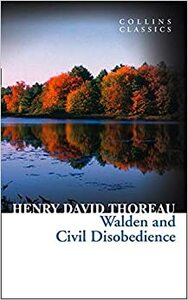Take a photo of a barcode or cover
challenging
slow-paced
informative
reflective
relaxing
slow-paced
Well thank goodness that's over!
The most frustrating thing about this book is that there are flashes of genius buried underneath obnoxious, trite, or boring passages, and to discover the best bits requires quite a bit of sleep-inducing reading.
Honestly the best sections/chapters are probably five stars, but the worst bits drag my rating way, way down. I really thought I was going to love this book, as I love nature books, I don't mind wordiness, and I like contemplative writing. But egads!
The chapter on reading, for example, had such beautiful sentiments as: "A written word is the choicest of relics. It is something at once more intimate with us and more universal than any other work of art. It is the work of art nearest to life itself." But then also goes on and on about how if you don't read books in the original latin or greek, you haven't really read them at all.
Likewise, the chapter called "Higher Laws" was very interesting. The chapter discussing why Walden pond was the color it was...very boring.
All that being said, it's good to read a classic just to know what it's about. It took me more than a year to read this one, cause I kept putting it down out of boredom. But I'm glad I read it.
The most frustrating thing about this book is that there are flashes of genius buried underneath obnoxious, trite, or boring passages, and to discover the best bits requires quite a bit of sleep-inducing reading.
Honestly the best sections/chapters are probably five stars, but the worst bits drag my rating way, way down. I really thought I was going to love this book, as I love nature books, I don't mind wordiness, and I like contemplative writing. But egads!
The chapter on reading, for example, had such beautiful sentiments as: "A written word is the choicest of relics. It is something at once more intimate with us and more universal than any other work of art. It is the work of art nearest to life itself." But then also goes on and on about how if you don't read books in the original latin or greek, you haven't really read them at all.
Likewise, the chapter called "Higher Laws" was very interesting. The chapter discussing why Walden pond was the color it was...very boring.
All that being said, it's good to read a classic just to know what it's about. It took me more than a year to read this one, cause I kept putting it down out of boredom. But I'm glad I read it.
Finished the first chapter, Economy. Imagine have Henry as your neighbor, he's cranky, unwashed and borrows your tools. On the other hand, living lightly and frugally is not a bad idea, tough to do in our modern consumer society.
Further into the book, Henry is torturing his neighbors by making offers on their farms, hard to say how serious about it he was and in the chapter Reading, recommends only the classics, because only really dead guys write the good ones. I do agree with the newspaper rant, mostly murders and celebrity trash, it's better to let most news alone and wait for the fluff to blow away. The chapter on Solitude is well named, Henry's in favor of lots of it.
The book continues on in this vein, Henry's vegan diet, his opinion on living in or close to nature, endless accounting and measurements. It's a tough read since he went to Harvard and has to prove it.
Still all in all, Thoreau was one of the earlier philosophers in the west calling out about over-commercialization and rampant consumerism along with his essay on civil disobedience against slavery, state religion and war. He is one of the originals, so suffer a bit, it still holds up.
Further into the book, Henry is torturing his neighbors by making offers on their farms, hard to say how serious about it he was and in the chapter Reading, recommends only the classics, because only really dead guys write the good ones. I do agree with the newspaper rant, mostly murders and celebrity trash, it's better to let most news alone and wait for the fluff to blow away. The chapter on Solitude is well named, Henry's in favor of lots of it.
The book continues on in this vein, Henry's vegan diet, his opinion on living in or close to nature, endless accounting and measurements. It's a tough read since he went to Harvard and has to prove it.
Still all in all, Thoreau was one of the earlier philosophers in the west calling out about over-commercialization and rampant consumerism along with his essay on civil disobedience against slavery, state religion and war. He is one of the originals, so suffer a bit, it still holds up.

